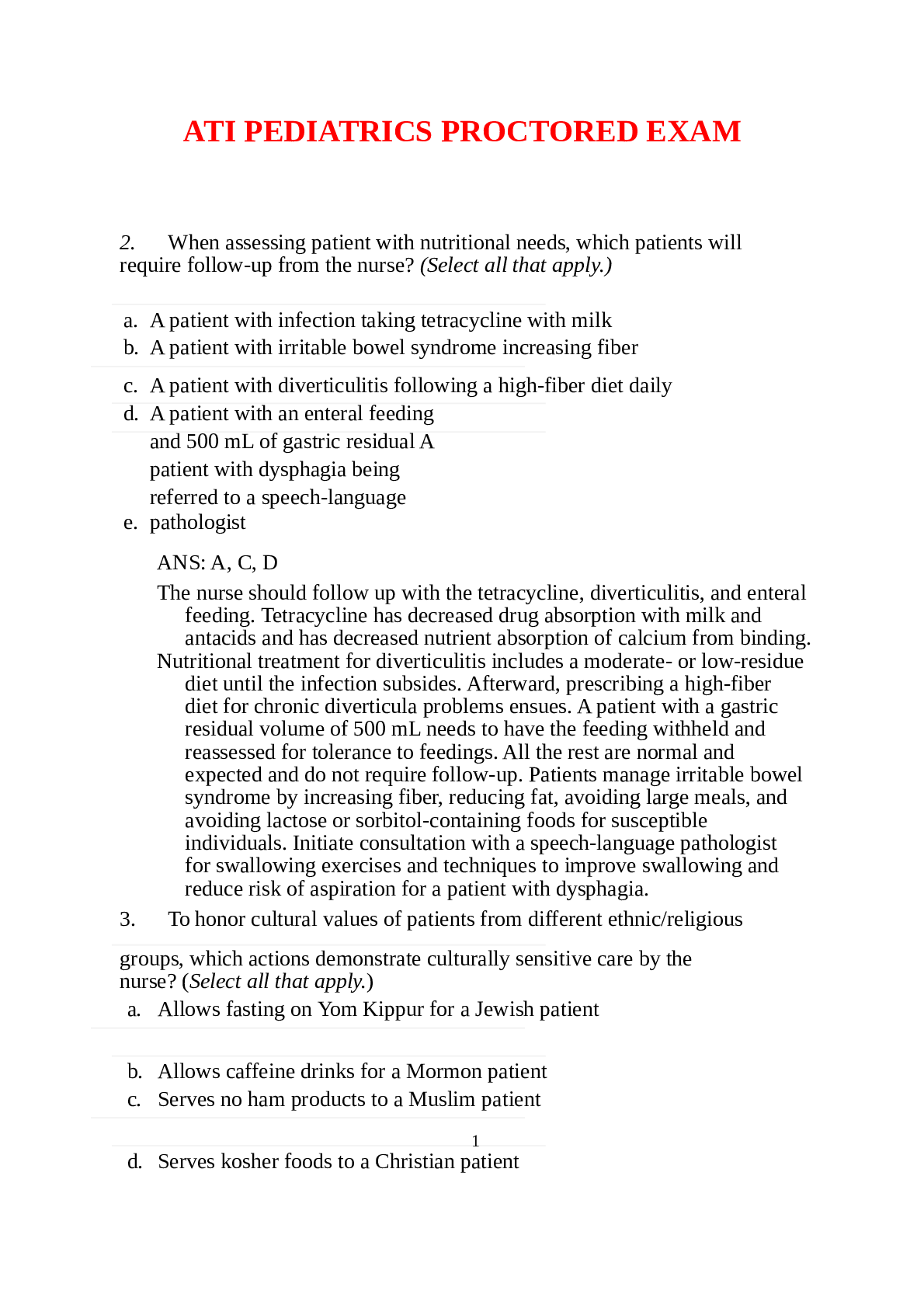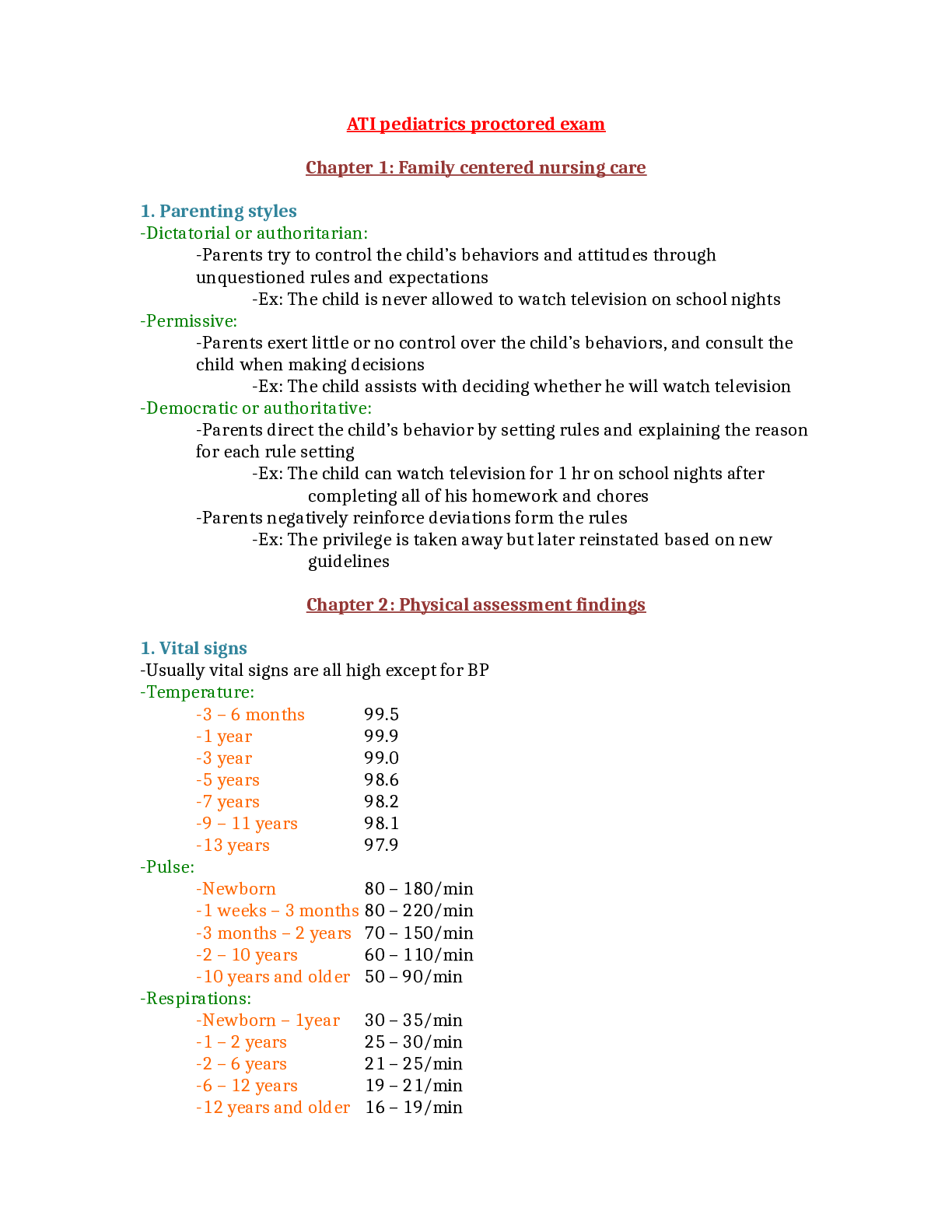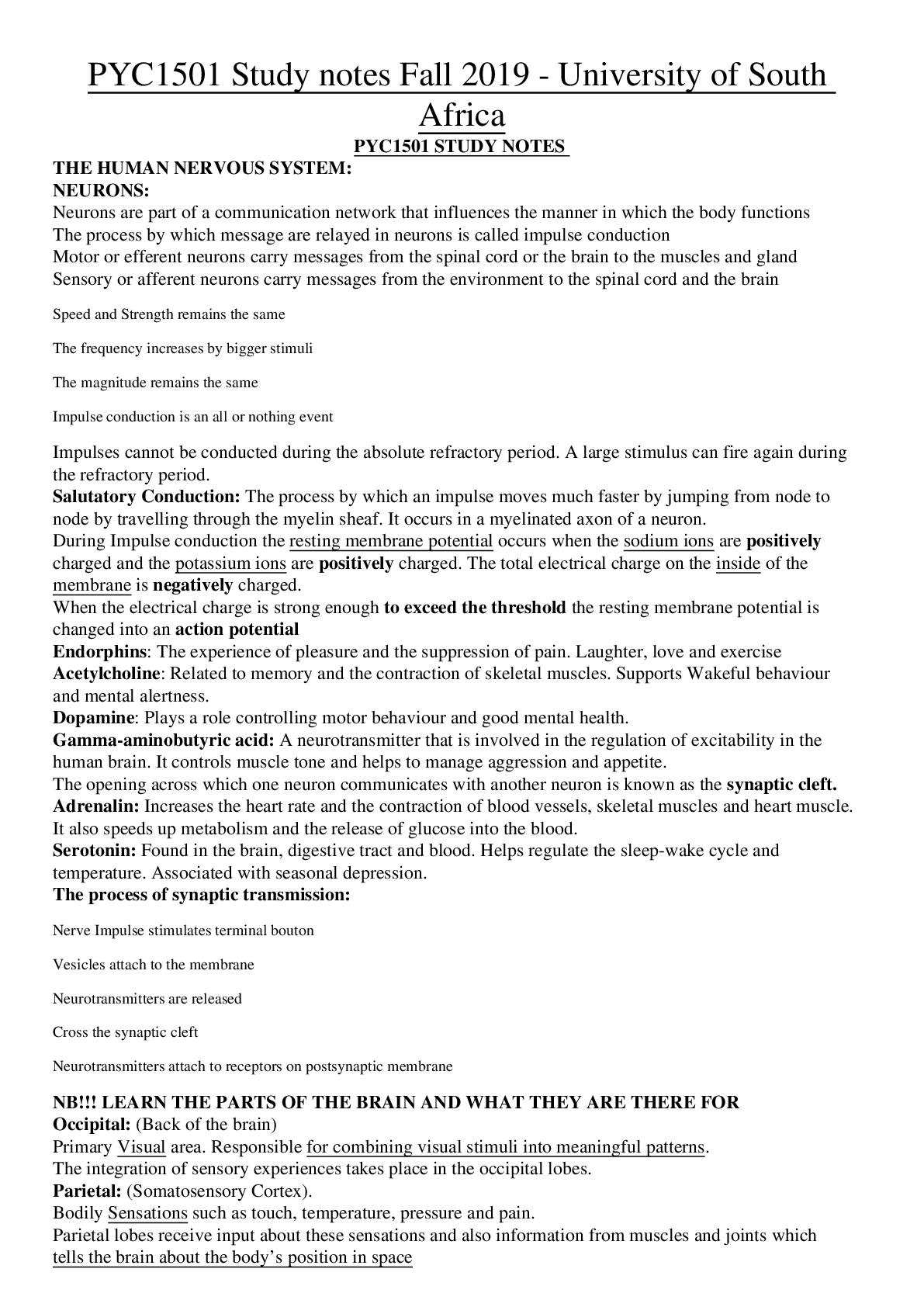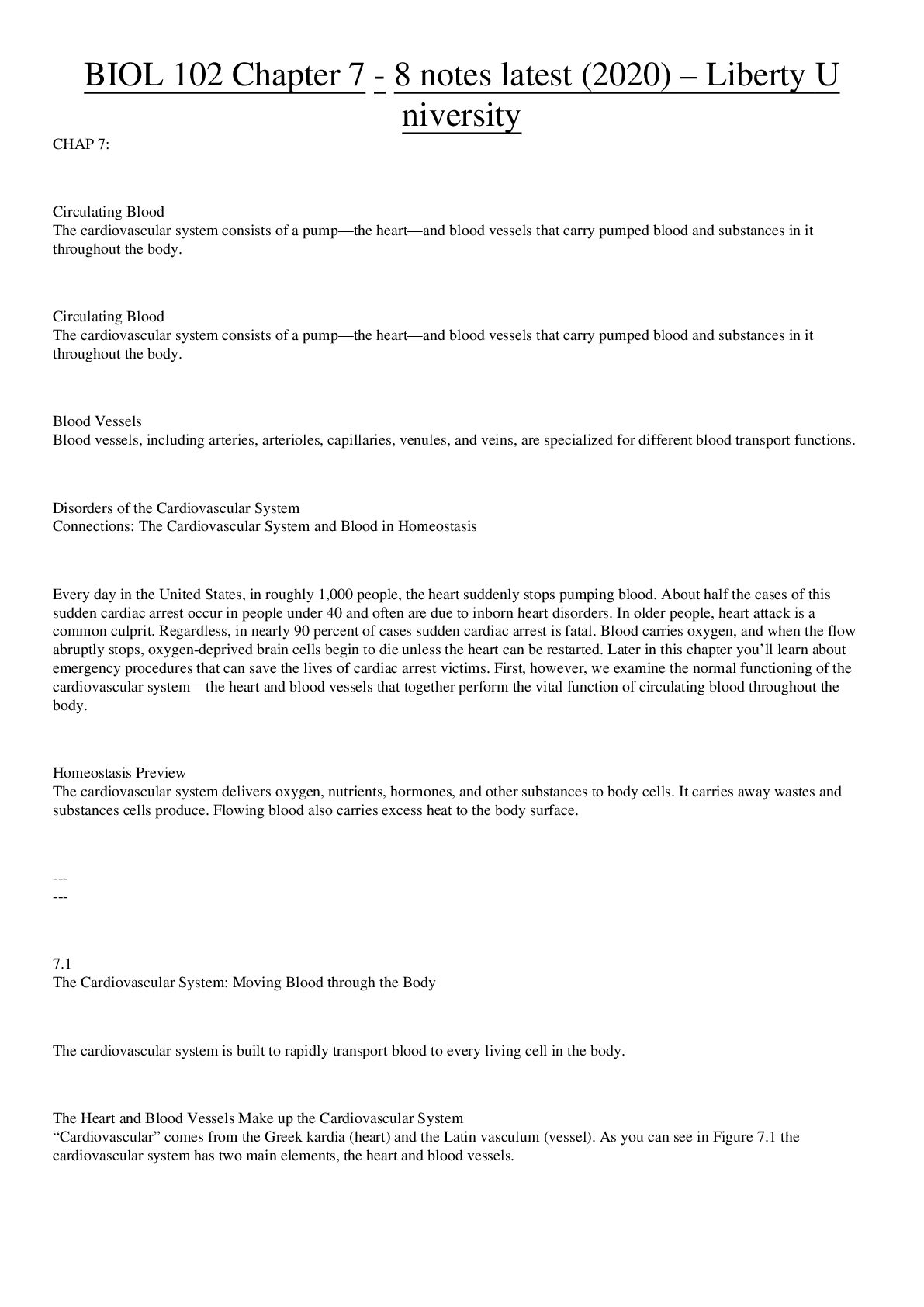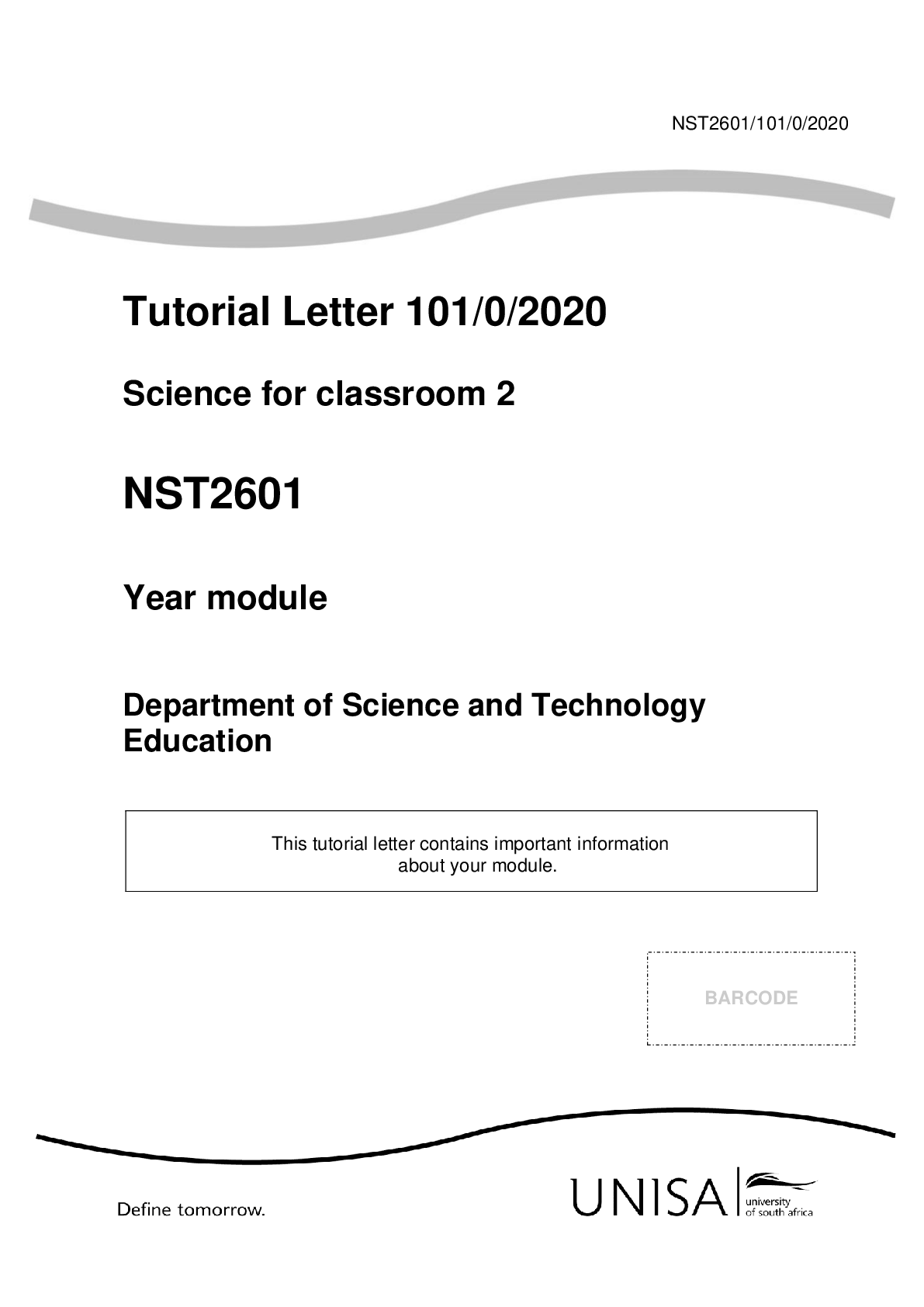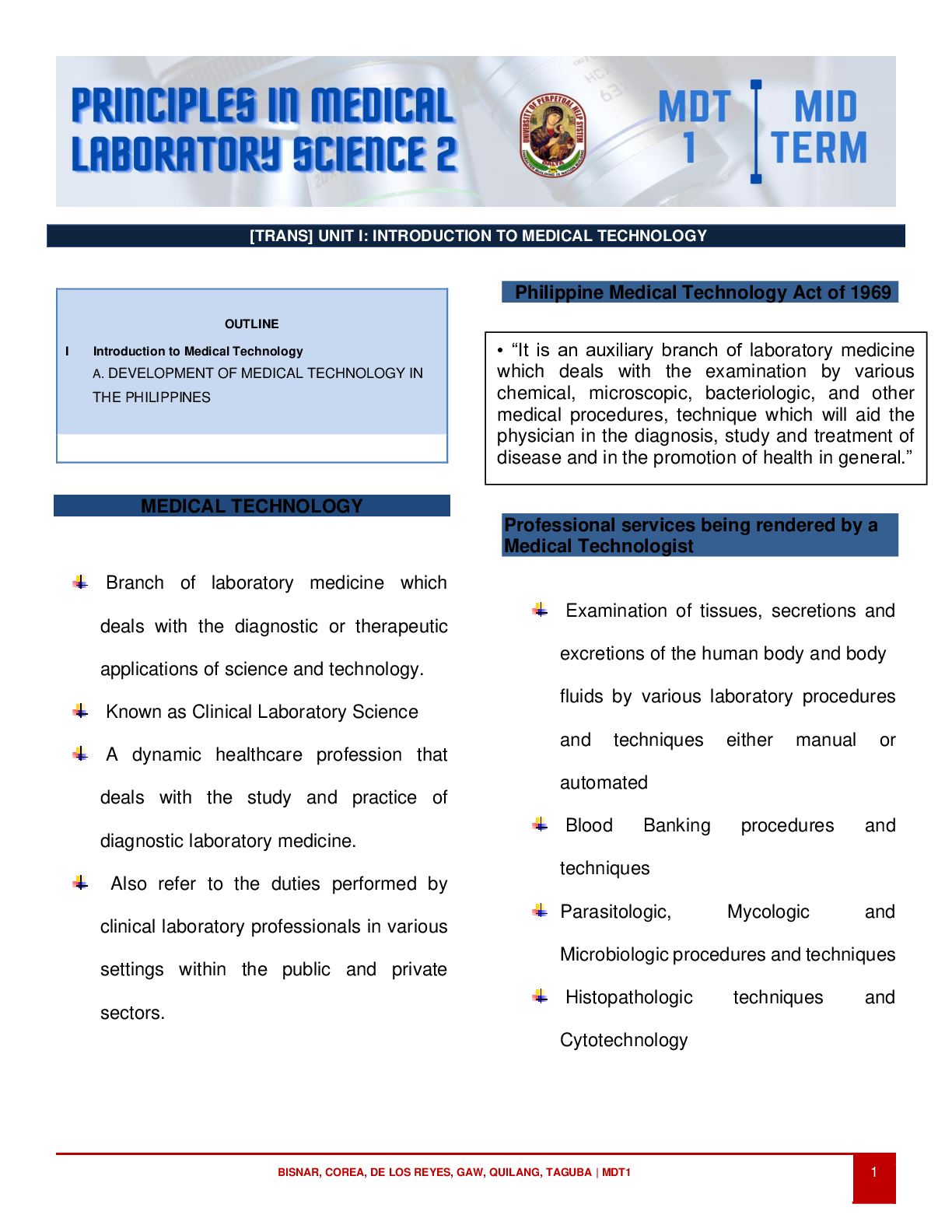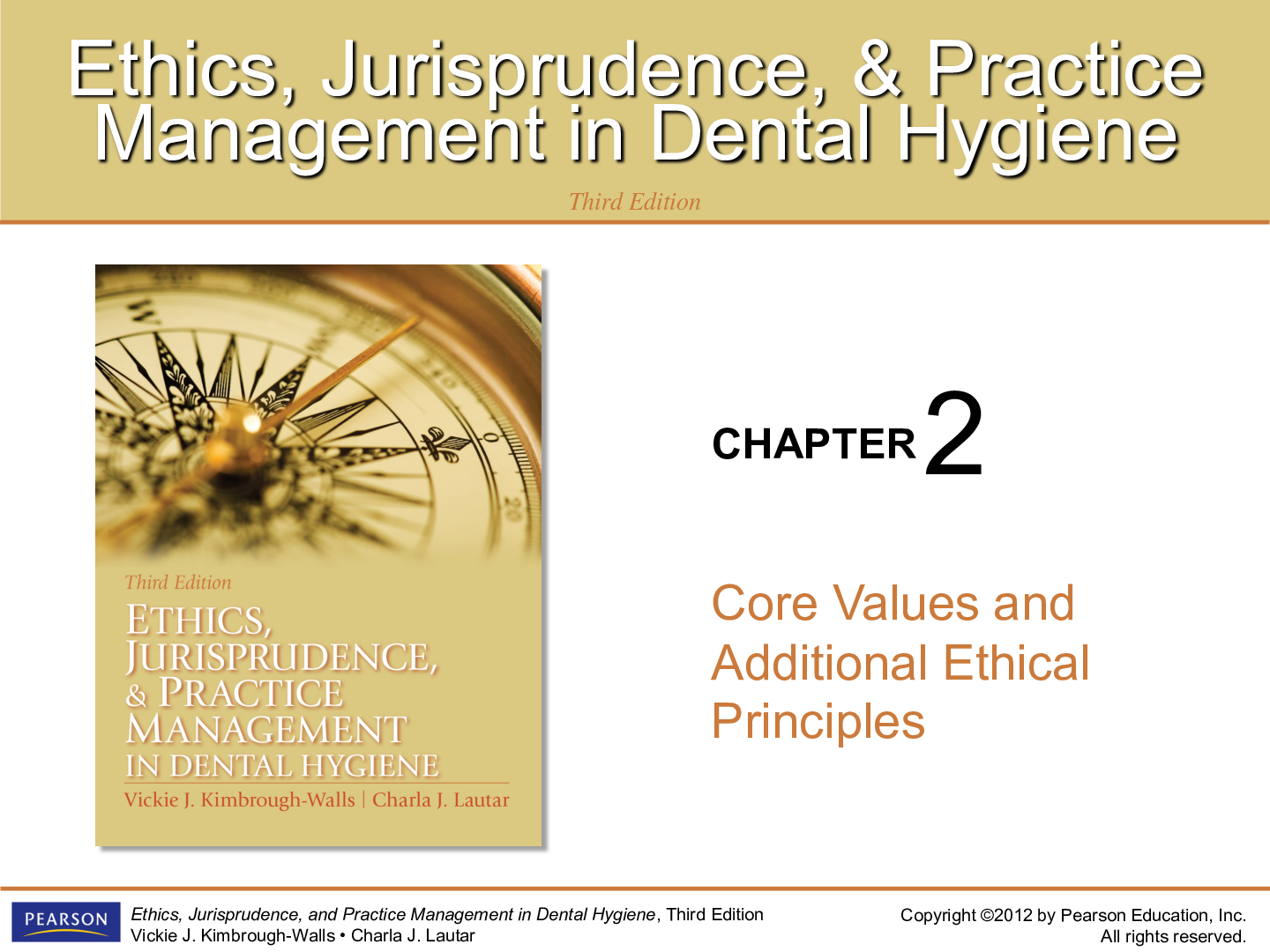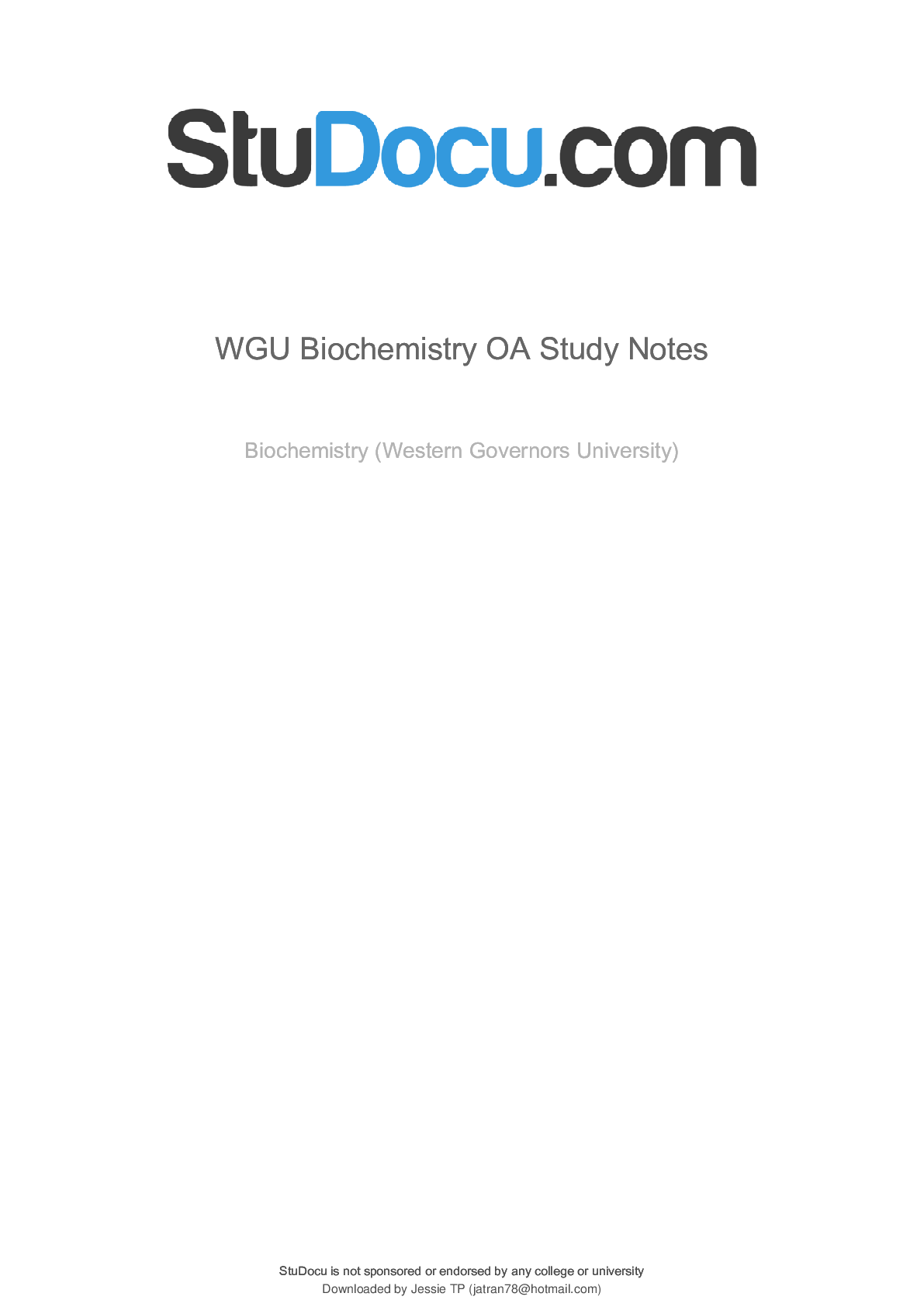Computer Science > LECTURE NOTES > CPE555 Real-Time and Embedded Systems Real-Time Operating Systems (All)
CPE555 Real-Time and Embedded Systems Real-Time Operating Systems
Document Content and Description Below
CPE555 Real-Time and Embedded Systems Lecture 8 Real-Time Operating Systems March 28, 2019 General Information Lecture: Thursday, 6:30-9:00 P.M. Location: McLean 414 Instructor: Jack Winters E... -mail: [email protected] Office: Burchard 413 All material on Canvas2 • Textbook: – “Embedded Systems: A Contemporary Design Tool” James K. Peckol, Wiley, ISBN 9780471721802 – Other Textbooks: • “Computer Organization and Design, The Hardware Software Interface: ARM Edition” David A. Patterson and John L. Hennessy, Morgan Kaufmann, ISBN 9780128017333 • “Modern Embedded Computing” Peter Barry and Patrick Crowley, Elsevier, ISBN 9780123914903 • “Hard Real-Time Computing Systems: Predictable Scheduling Algorithms and Applications” George Buttazzo, Springer, ISBN 9781461406754 Other Readings: Will be provided via Canvas • Prerequisites: – None (previous coursework in C programming and microcontrollers/assembly language strongly recommended) General Information3 • COURSE DESCRIPTION This course is a survey of many topics of interest to designers of real-time and embedded systems. This course will cover the definition of embedded systems, real-time systems, processor architecture, memory devices and architecture, embedded hardware devices and components, concurrent programming, real-time operating systems, real-time scheduling algorithms and analysis, application examples, and additional topics in real-time and embedded systems. This course will prepare students for careers and research positions in embedded systems design and real-time embedded software development. ACKNOWLEDGEMENT: Course material based on material from Richard Prego. General Information4 • LEARNING OBJECTIVES After successful completion of this course, students will be able to… • Define what real-time embedded systems are, and give examples of each • Describe the difference between hard- and soft-real-time systems • Understand the size, weight, and power requirements that constrain embedded systems • Describe the differences between Harvard and Von Neumann machines and their benefits • Describe how pipelining is used to improve processor performance • List the types of memory devices used in embedded systems, and explain the benefits and drawbacks of each • Understand the principles behind caching and the associated performance improvements • Describe what purposes interrupts and timers serve in embedded system designs • Determine what hardware interfaces should be used for different devices commonly used in modern embedded systems • Understand common issues related to concurrent/multi-threaded programming and how to resolve them • Develop simple multi-threaded applications in C • Use common features of real-time embedded operating systems and develop simple applications in FreeRTOS • Describe various scheduling algorithms used in real-time systems and analyze the feasibility of different schedules General Information5 • COURSE REQUIREMENTS • Attendance Attendance is not graded; however students are expected to attend all lectures. If you expect to miss a lecture, please notify the instructor. • Students are responsible for self-study of any missed lecture material. • Homework There will be 5 homework assignments and 1 group presentation in this course. Due dates are listed in the tentative schedule below. Homework should be submitted via Canvas. Acceptable file formats for submission will be described in the assignment (generally will be a PDF file, Word document, or zip file). Extensions to due dates will be granted on a case- by-case basis. Requests for extensions must be submitted by email prior to the assignment due date. • Exams A midterm and a final exam will be given. The midterm exam will cover the first half of the course, and the final exam will cover the second half of the course (non-cumulative). The tentative exam dates are listed in the tentative schedule below. General Information• 6 GRADING PROCEDURES – Grades will be based on: • Homework (5 total) (40 %) • Midterm Exam (25 %) • Final Exam (25 %) • Presentation (10%) [Show More]
Last updated: 1 year ago
Preview 1 out of 69 pages
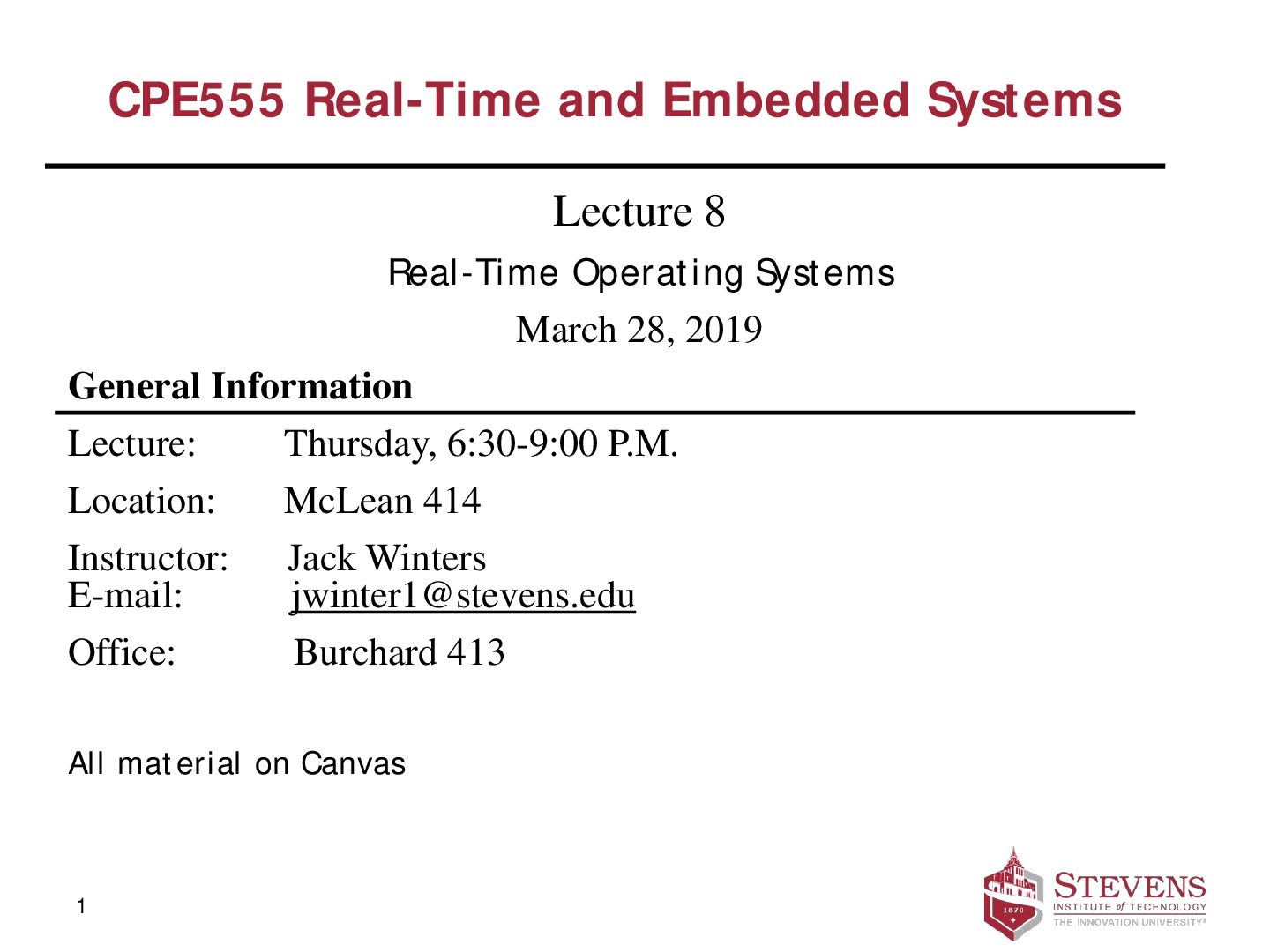
Reviews( 0 )
Document information
Connected school, study & course
About the document
Uploaded On
May 19, 2021
Number of pages
69
Written in
Additional information
This document has been written for:
Uploaded
May 19, 2021
Downloads
0
Views
150

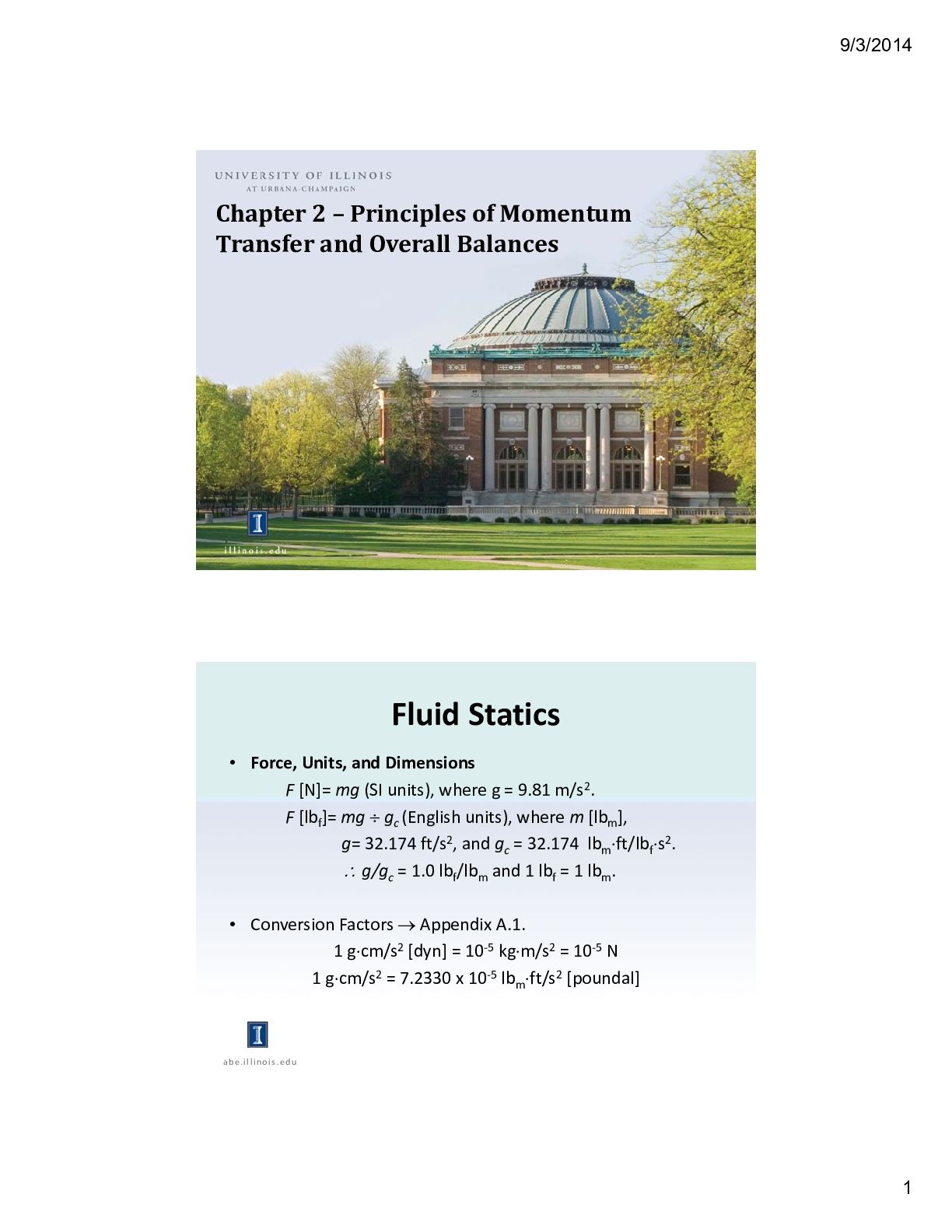

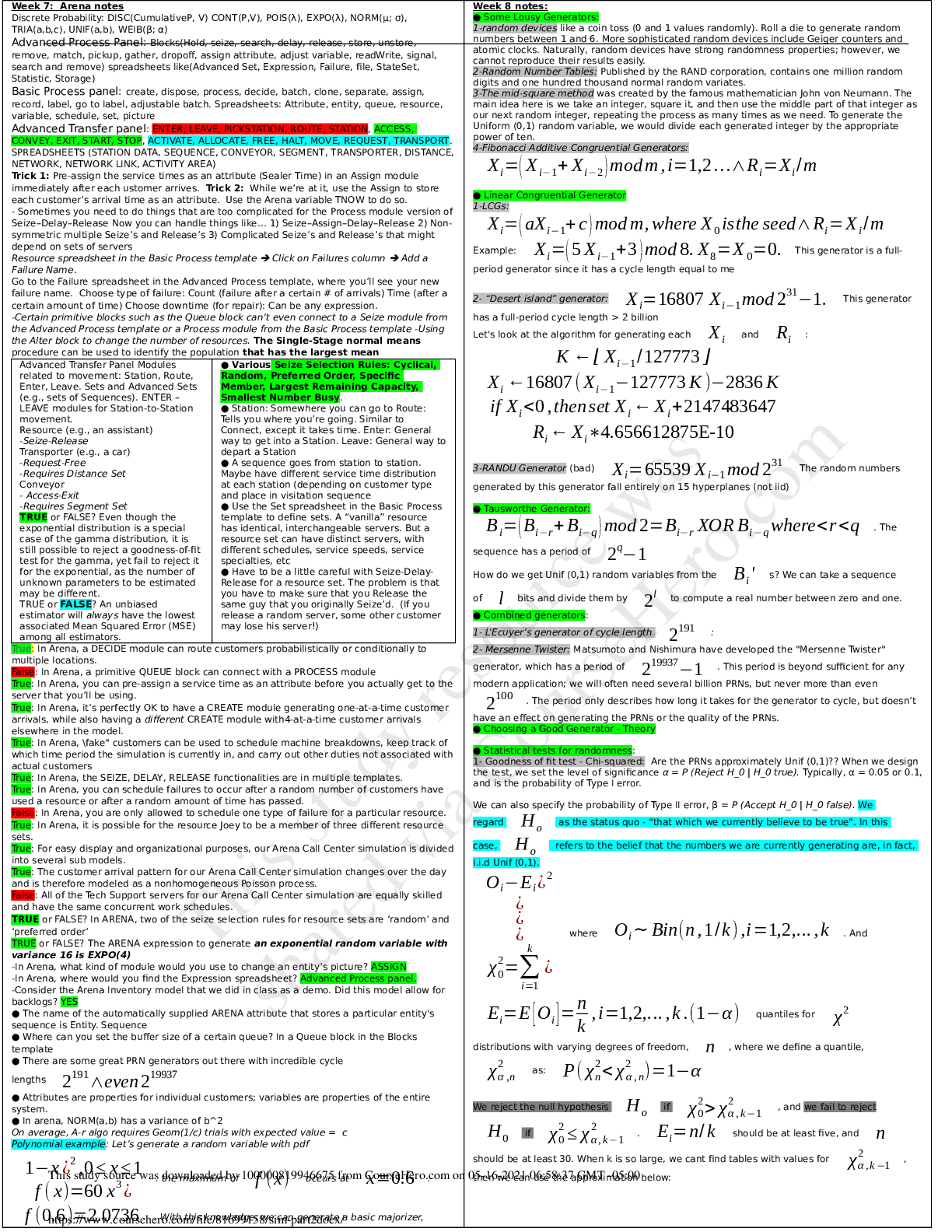

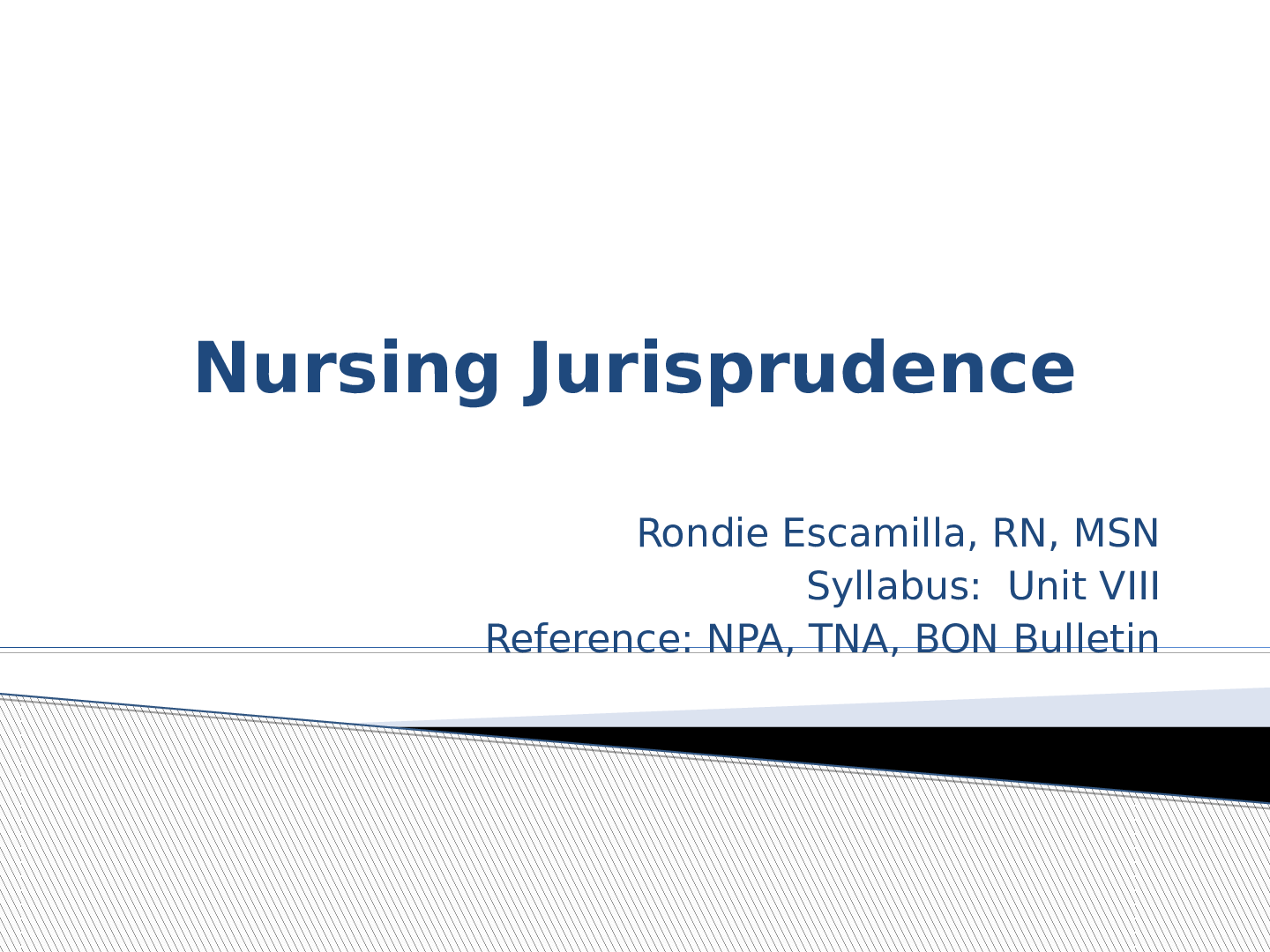

.png)
.png)

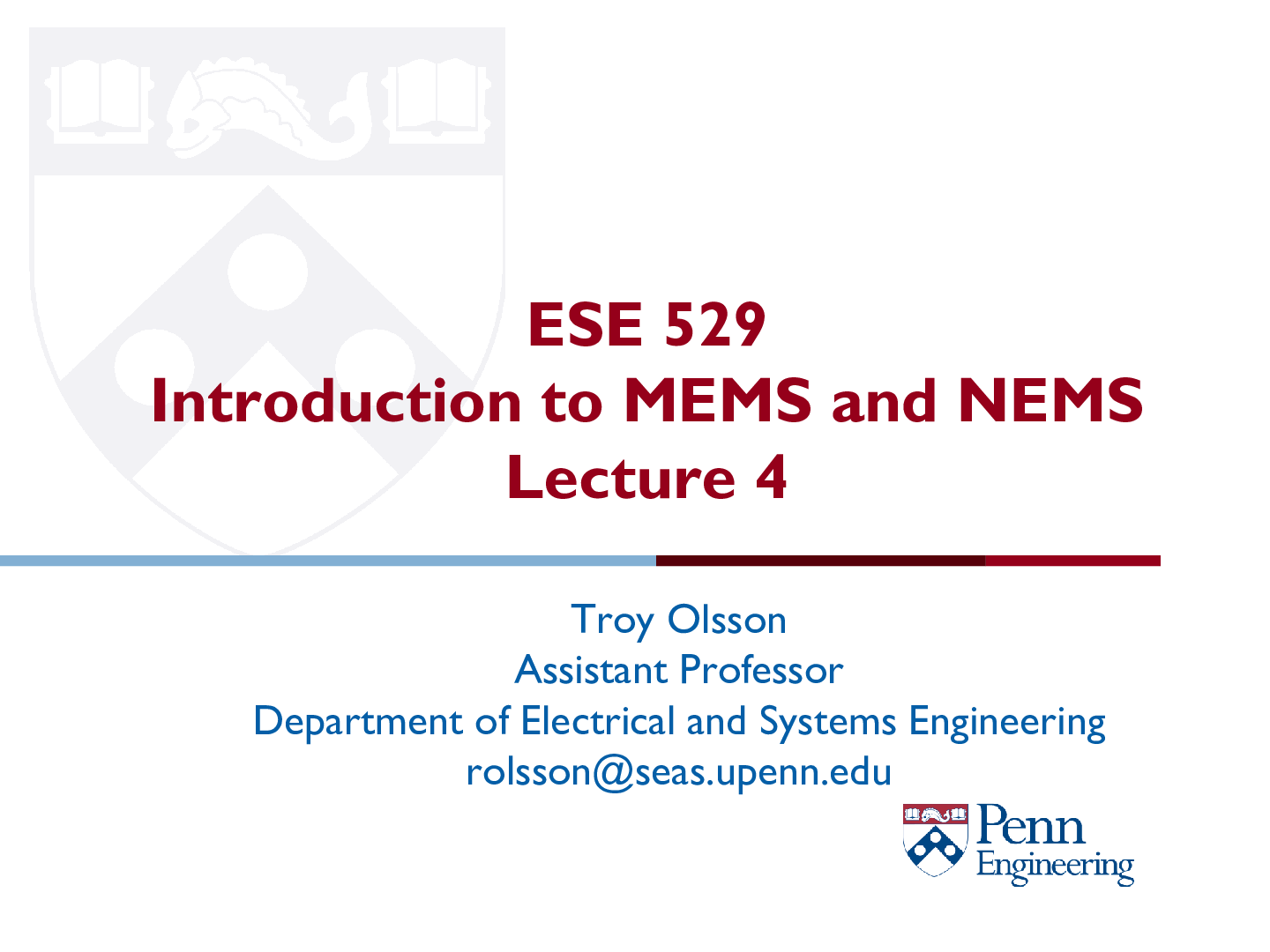
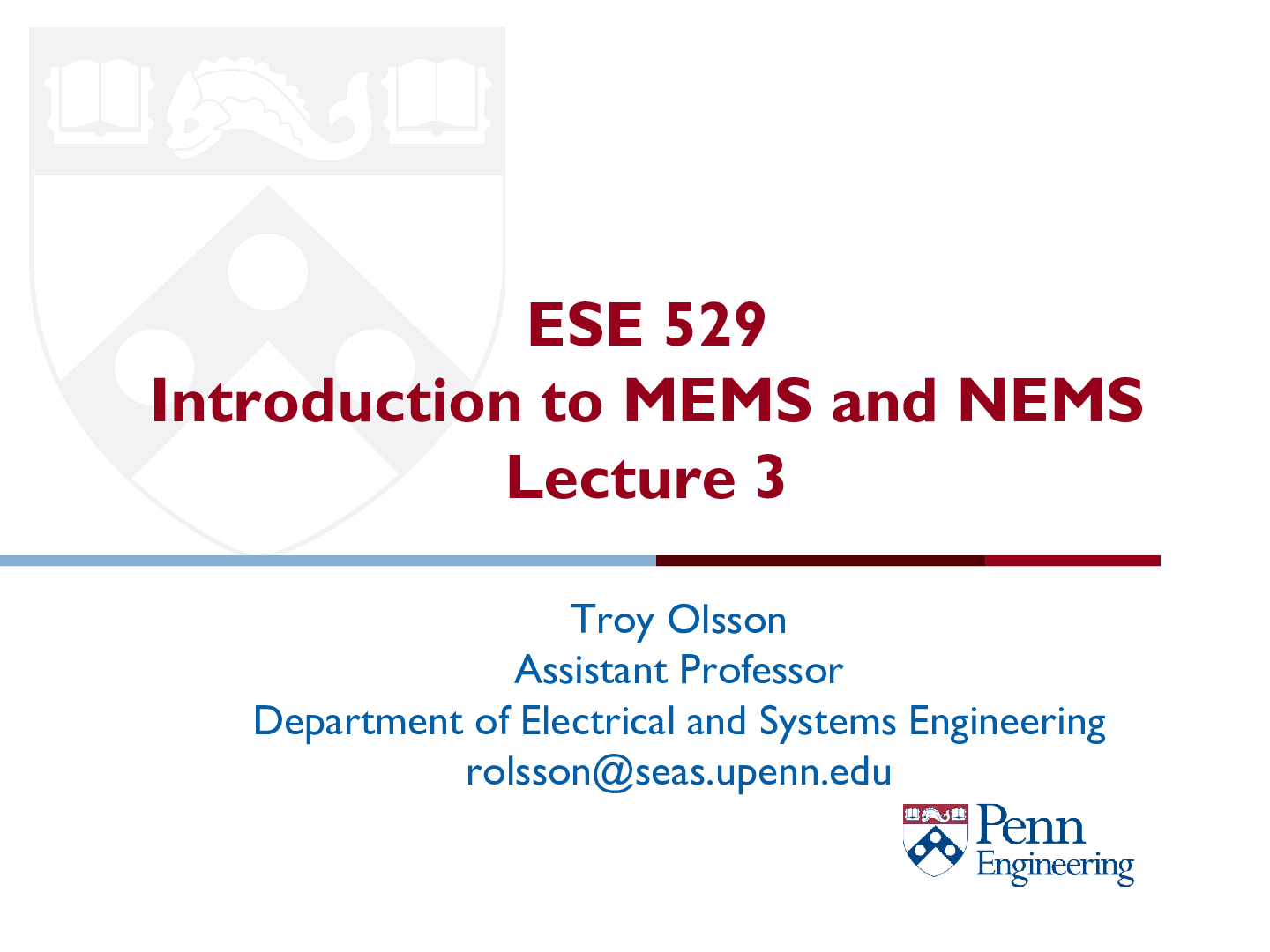

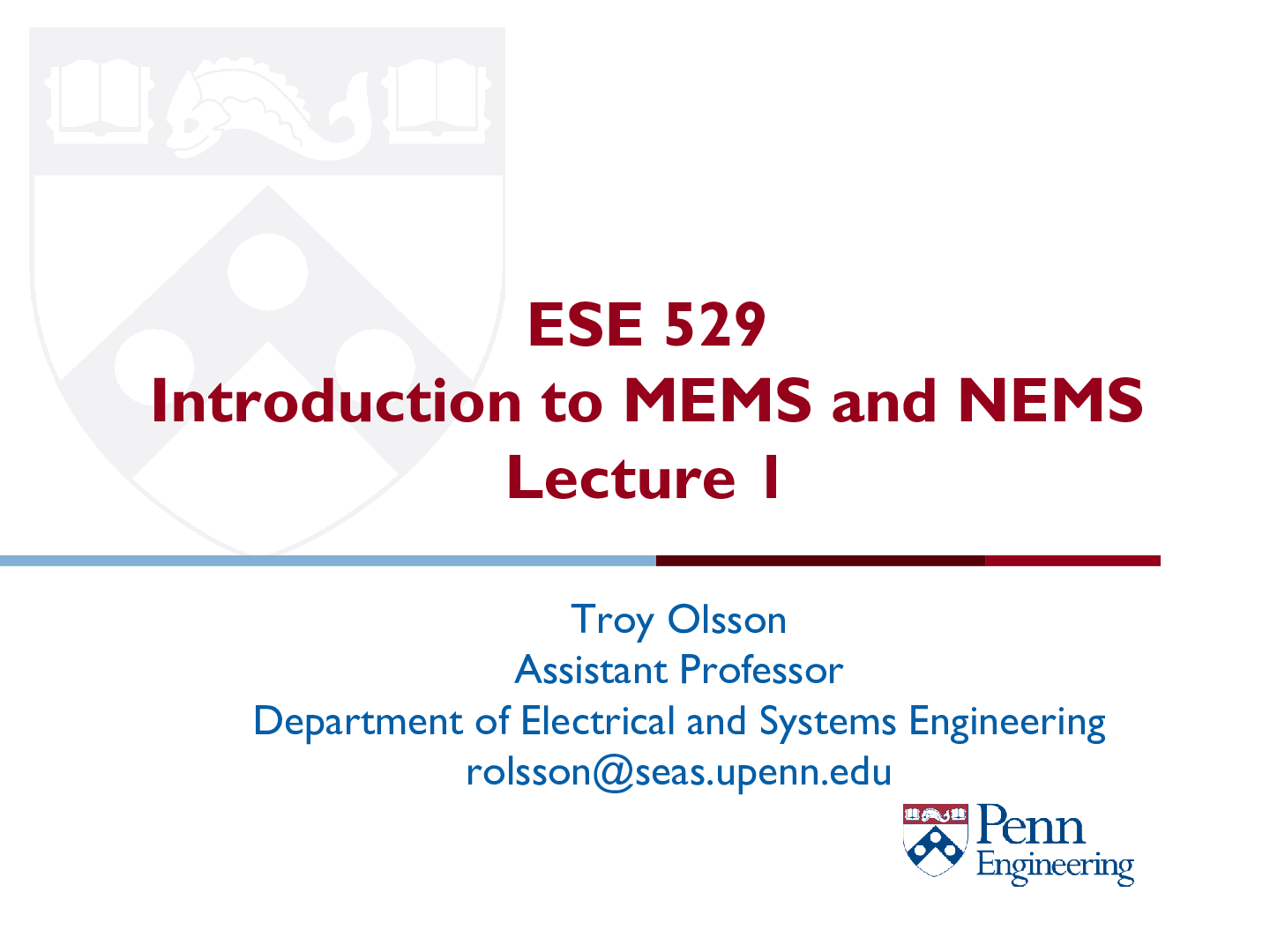
.png)
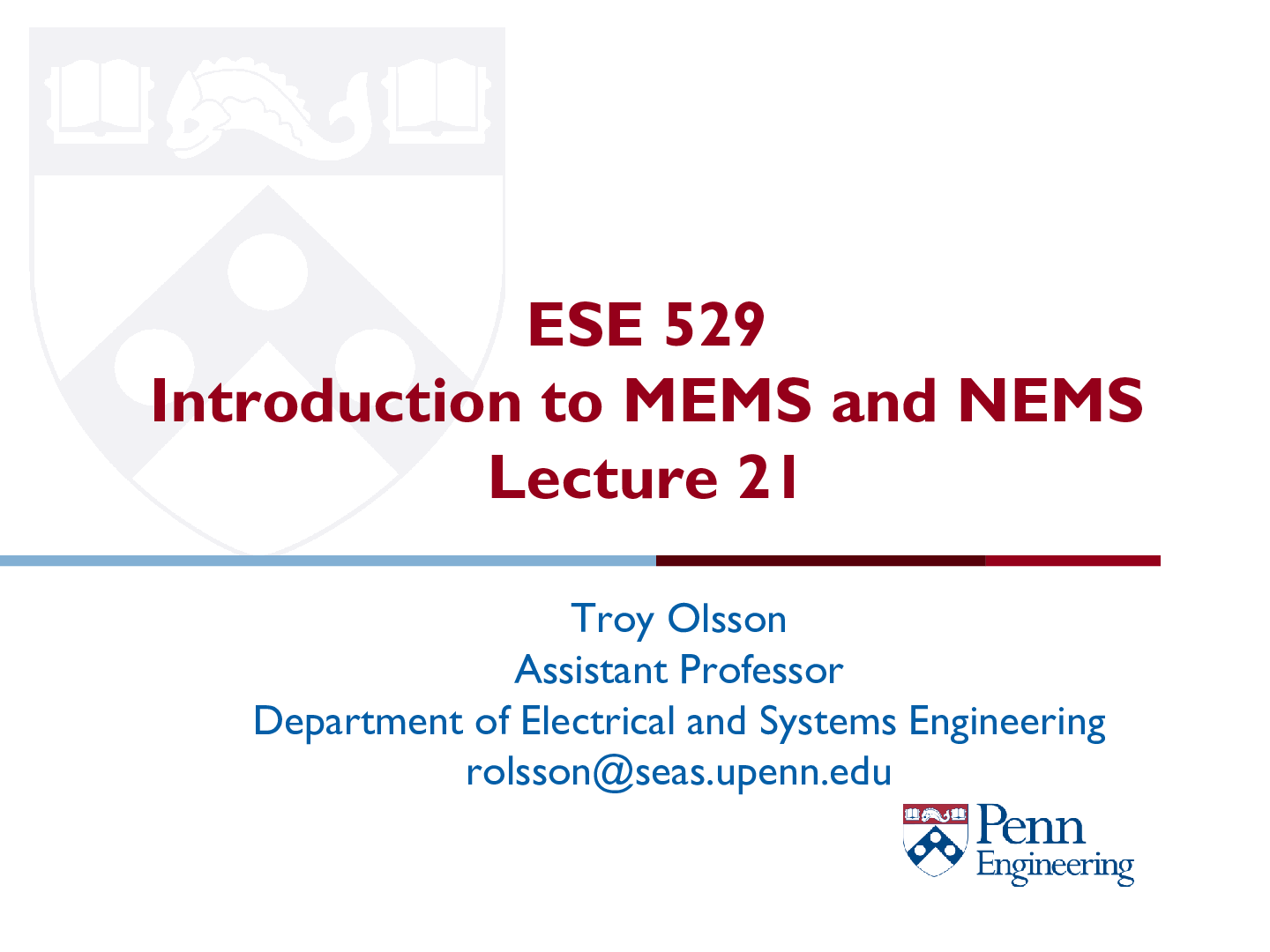
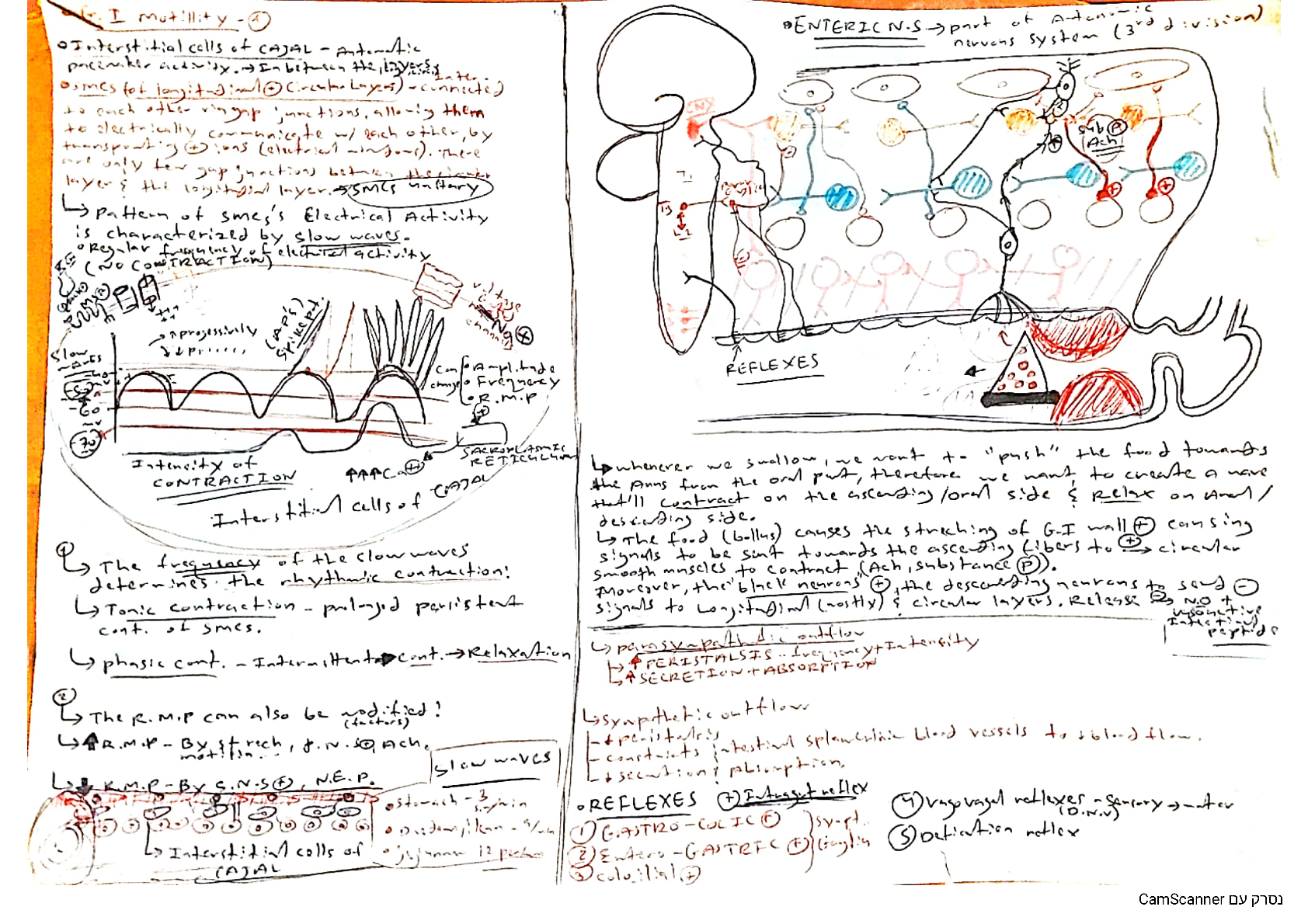
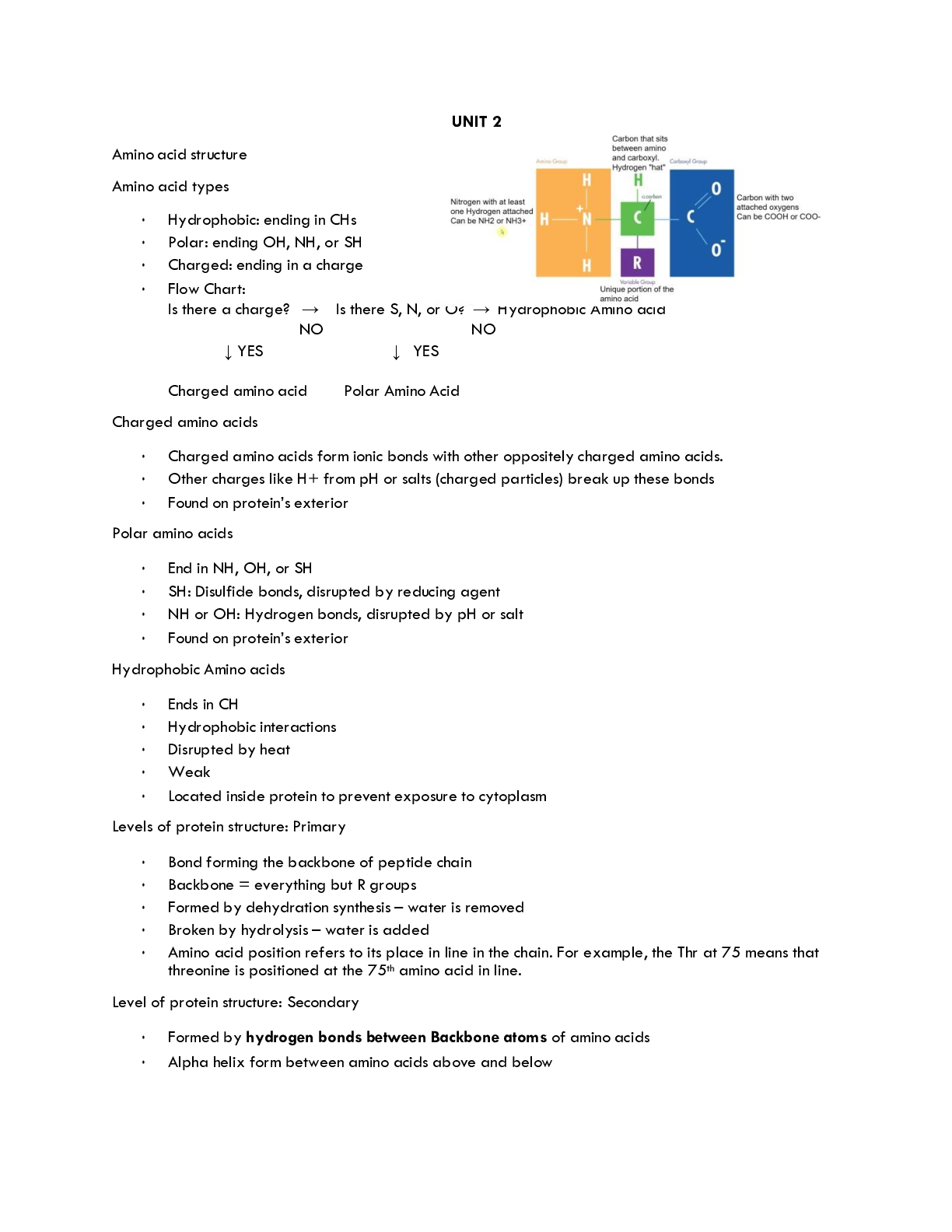
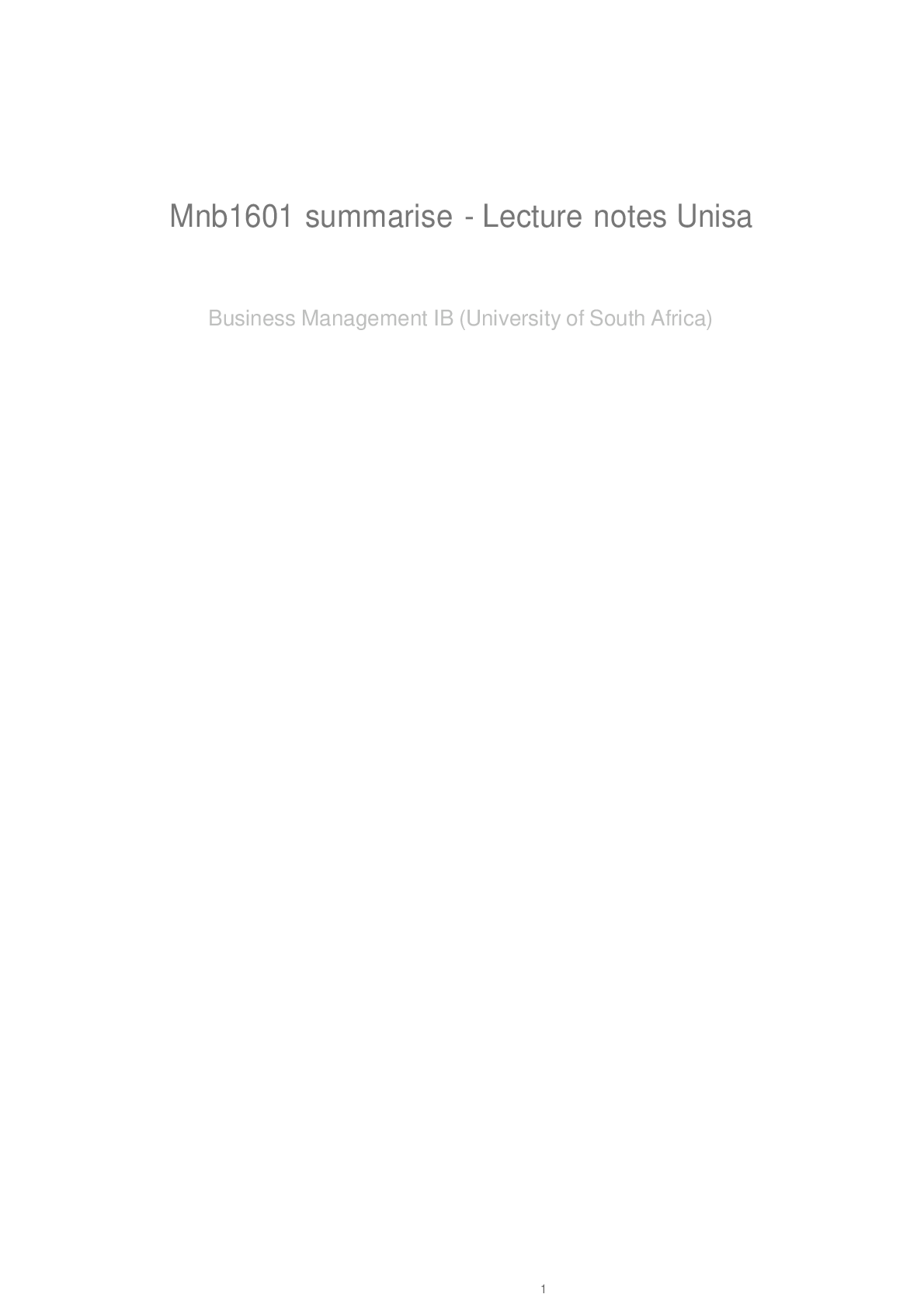
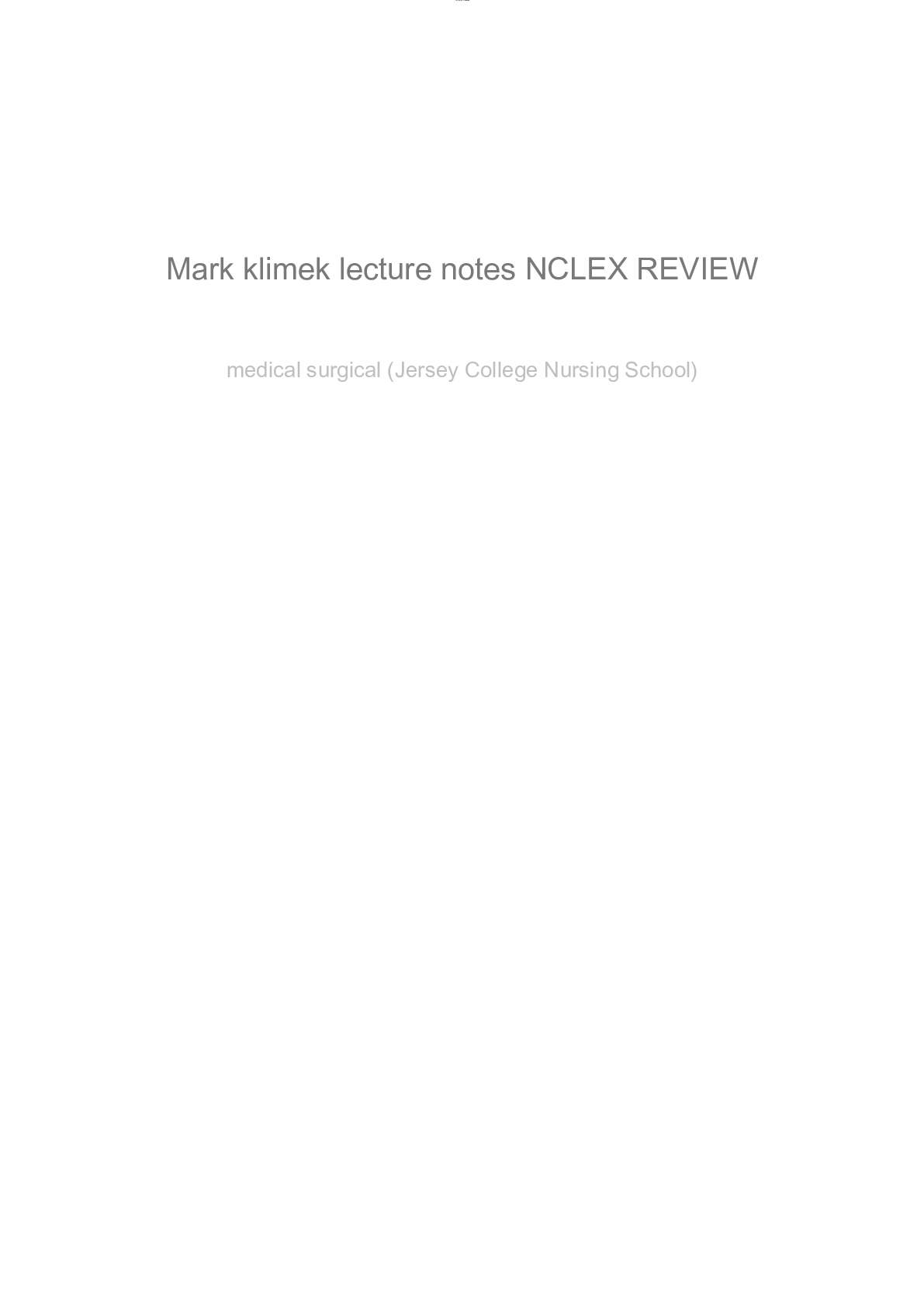
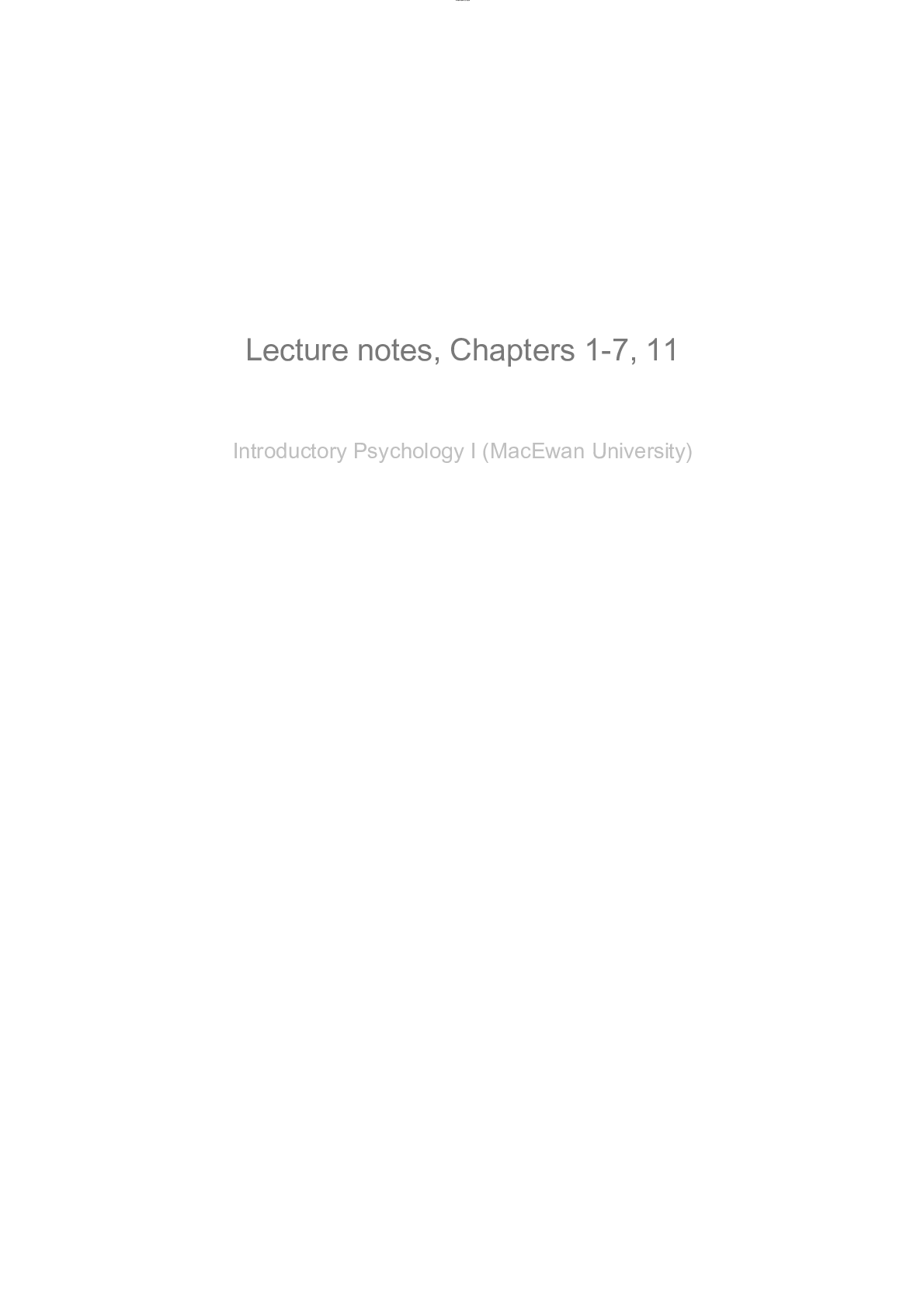

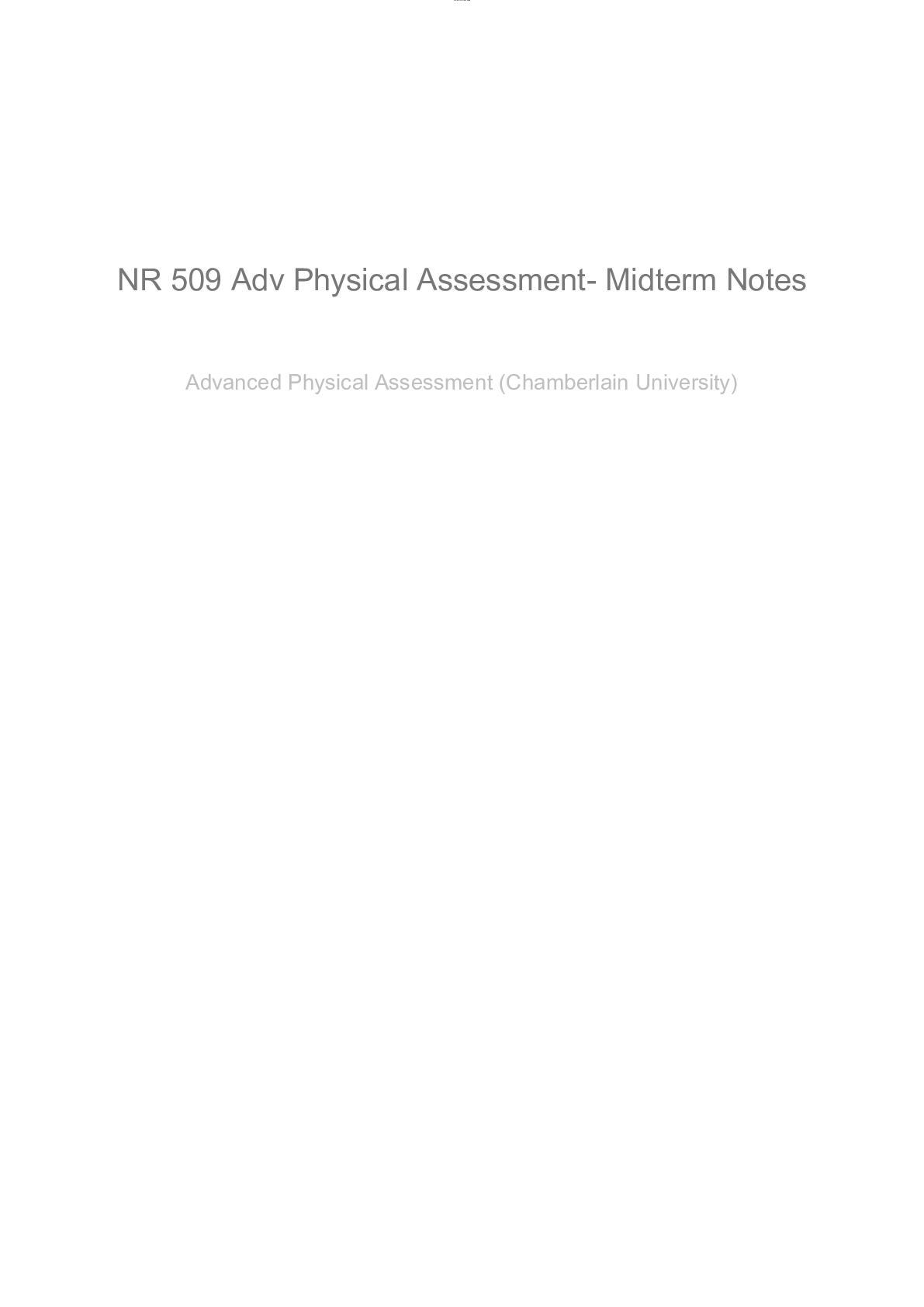
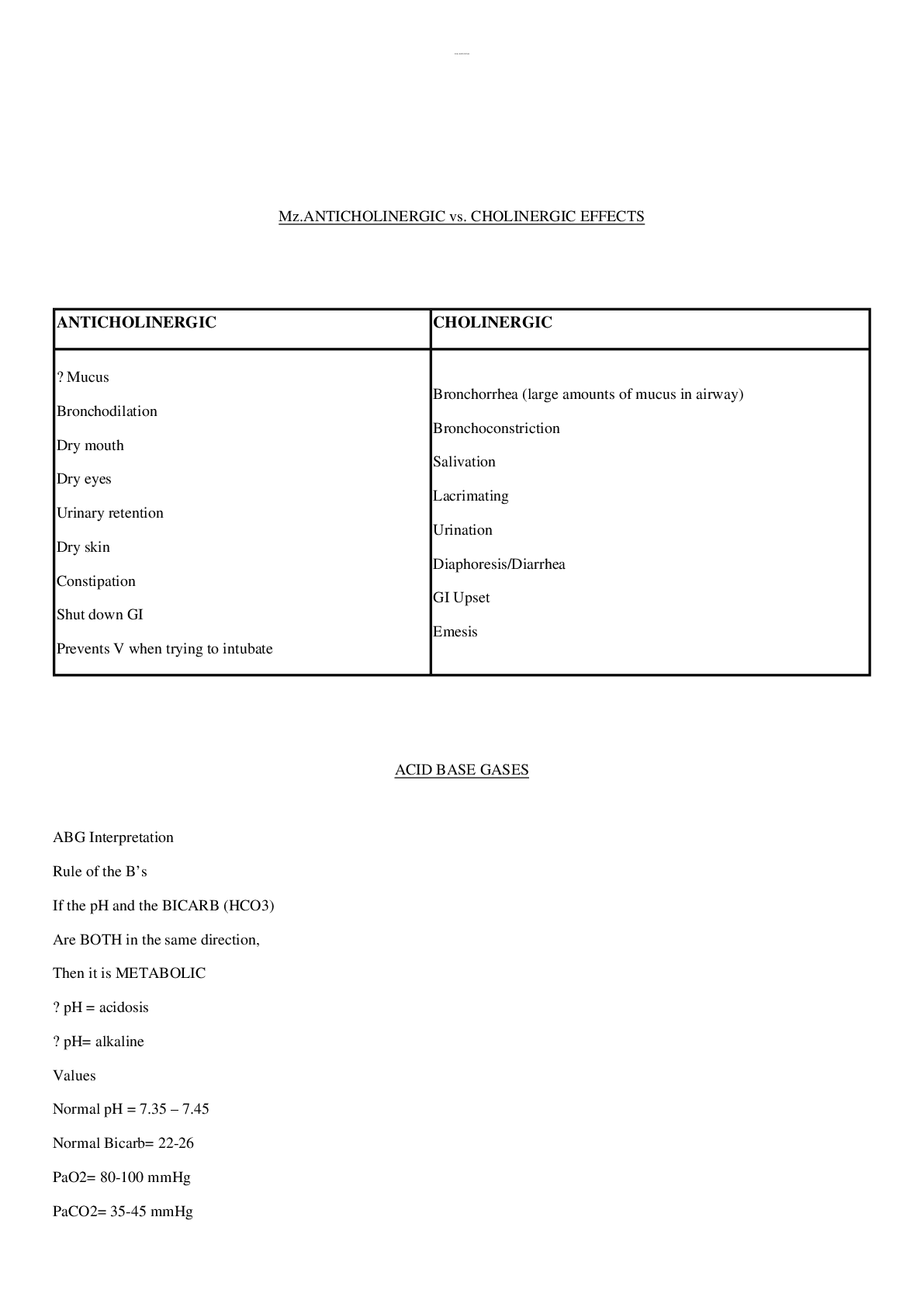
.png)

